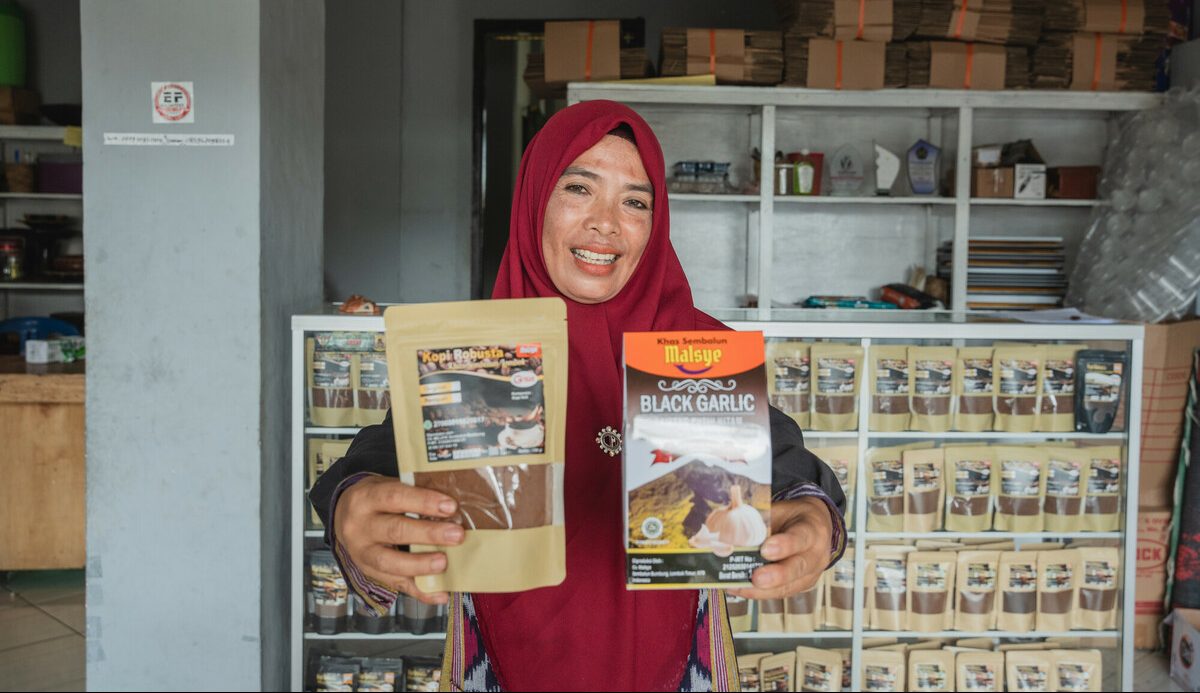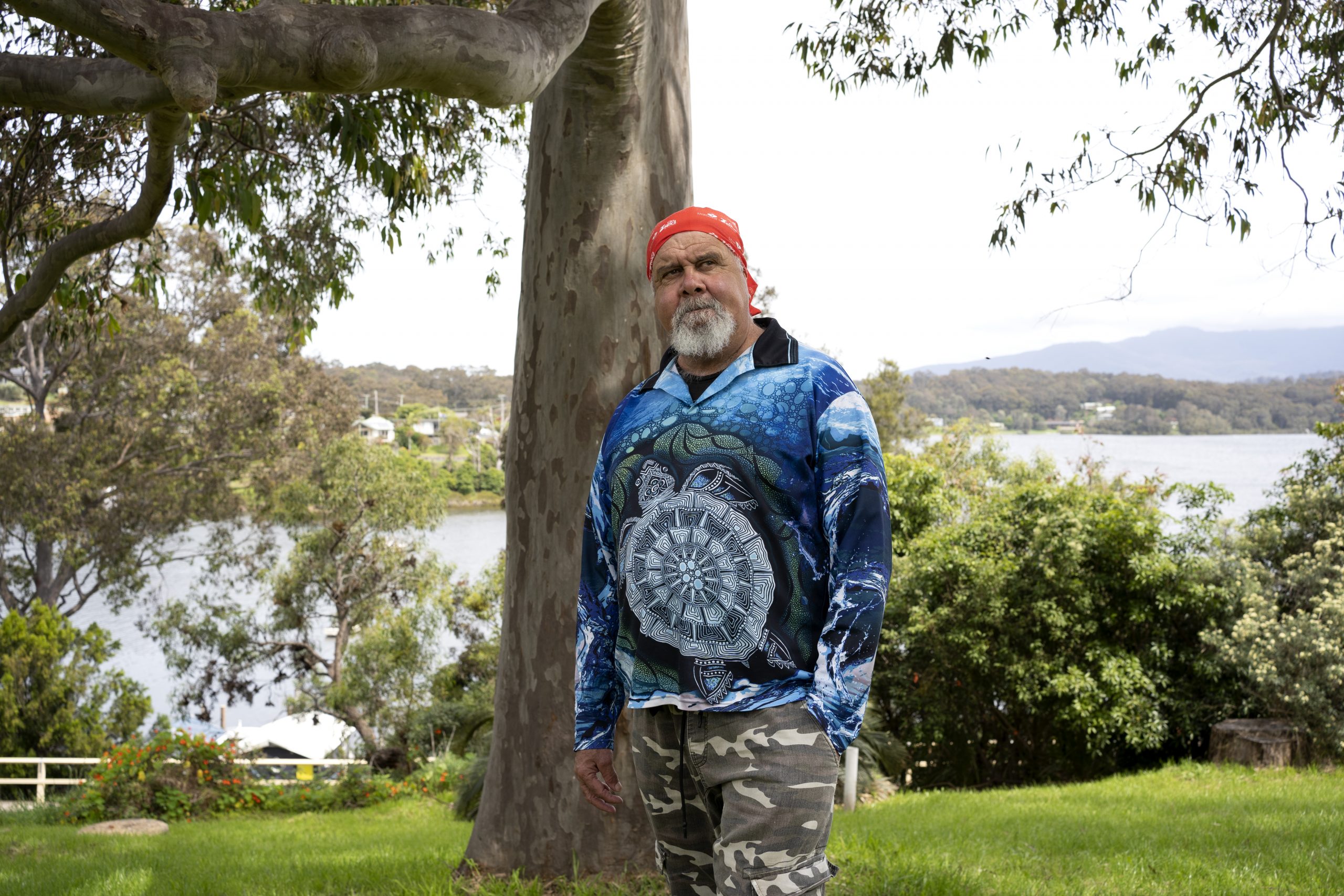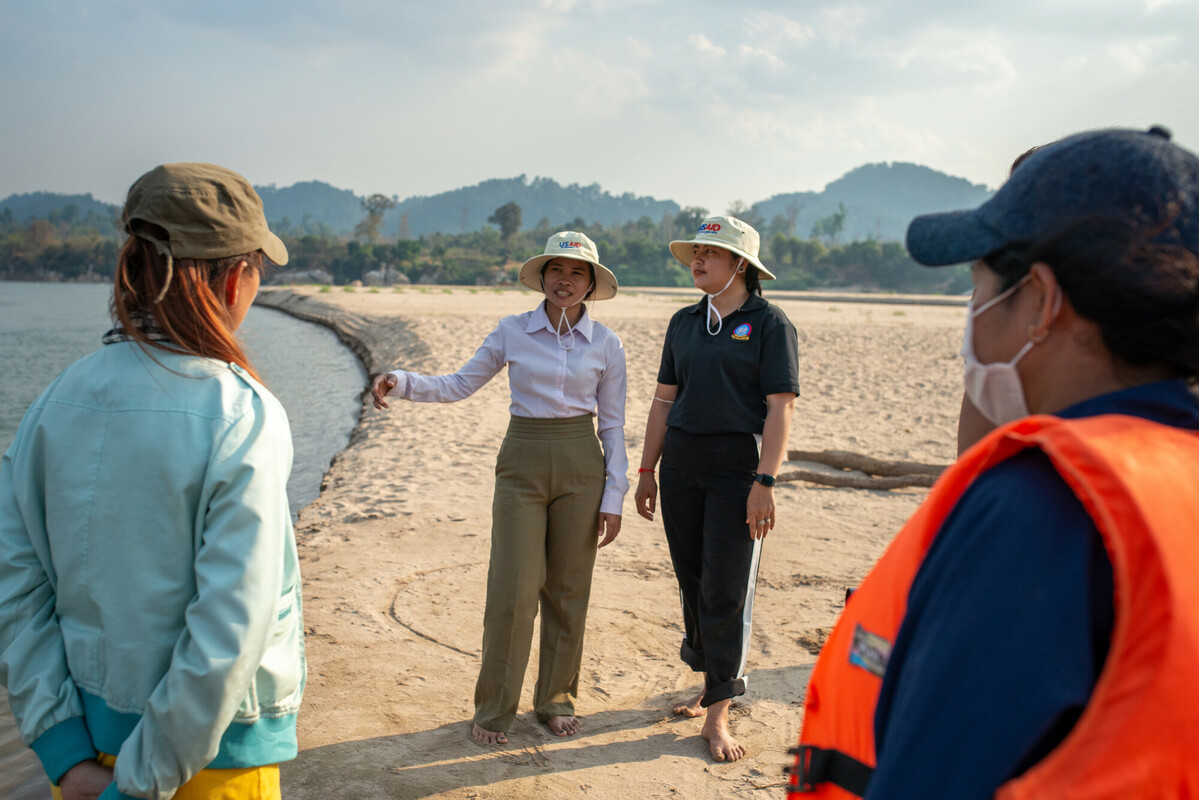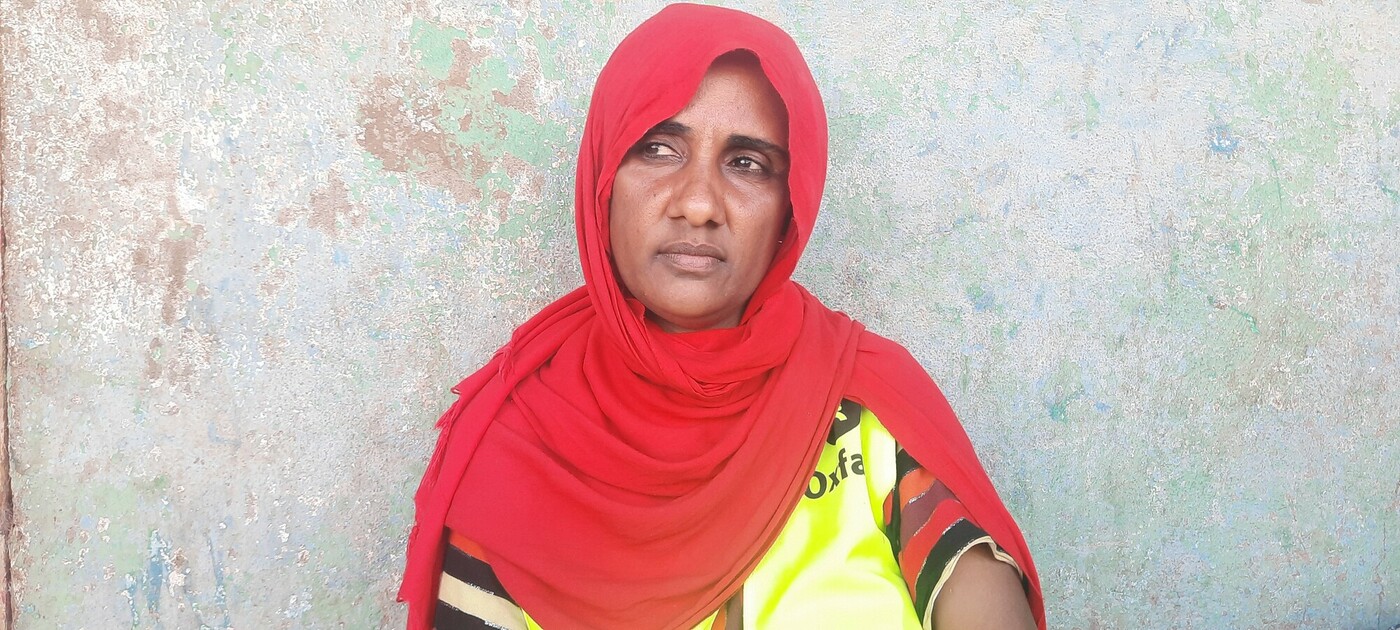Meet Syaeun in Indonesia
Severe floods are frequently damaging Syaeun’s village, as well as her ability to sell her produce, but she is learning new ways to respond to disasters and earn an income.
read her storySevere floods are frequently damaging Syaeun’s village, as well as her ability to sell her produce, but she is learning new ways to respond to disasters and earn an income.
The East Lombok district of Indonesia was already vulnerable to extreme weather events, and now climate change is making matters worse. Rural communities are frequently experiencing loss of life and livelihoods due to extreme weather.
“The natural disasters that frequently happen in Sembalun are flash floods,” said local resident Syaeun. “The consequences of these disasters are particularly felt by farmers as lots of agricultural lands get buried … farmers often can’t cultivate or harvest for six months straight.”
Before [local organisation] KONSEPSI and Oxfam came to Sembalun, the people had little knowledge of how to deal with such disasters … they just ran away, and they didn’t consider their safety. As a result, there were many mass fatalities.
With the support of the Australian Government through the Australian NGO Cooperation Program, Oxfam Australia and local partner, Director of Consortium for Study and Participatory Development (KONSEPSI), are helping vulnerable communities in East and West Nusa Tenggara to build climate and disaster resilience.
The program is providing community training in early disaster warning systems and rescue process assessments that prioritise vulnerable groups.
To help build resilience, the project is also developing sustainable businesses, such as a coffee plantation that mitigates against flash flooding, encouraging product diversification and providing financial support, particularly for women.
“We from the women of small and medium enterprise [group] were trained how to make snacks from our agricultural products,” says Syaeun. “When the products were produced, they assisted us by linking us to related government institutions [for food certification].”
“At first, there were three small businesses, but there are 22 now. Us as women proved ourselves to other women out there; that women can produce a lot of things and all of these 22 businesses now have their own special or unique products.”
Read more stories of impact
Wally’s Story
For decades, First People have been unable to perform cultural fishing, a tradition that goes back over 65,000 years.
Learn MoreChantha’s Story
Chantha’s passion for the environment has led her to become a leader in her community.
Learn MoreSelamawit’s Story
During humanitarian crises, community members like Selamawit are often the first responders.
Learn More


